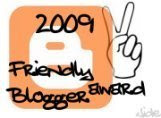October 18, 2008. It was a brilliant day in St. Louis. The sky was robin’s egg blue and dotted with passing clouds. The Arch gleamed brightly in the sunshine as 100,000 good citizens filled the park grounds to enjoy their moment in history. Barack Obama was getting ready to speak.
For me, the day started with a ride on Metro to the riverfront. The train was full but not overly crowded, and there was a definite hum in the air. Some folks seemed excited and jovial. Others lost in their thoughts. Everyone, though, seemed to radiate a keen sense of anticipation. Myself included.
As Metro pulled into the Laclede’s Landing stop, you could see scores of people already filling the Arch grounds. All along the road, more people were coming down from every direction to cue up for their entrance to the park.
At the sight of so many already on site, a spontaneous roar and applause erupted in my car. A woman yelled out, “Yes we can!” I hadn’t even got off the train and already I had goosebumps and lump in my throat.
As I came out of the Metro station I was astounded to see so many people in one place behaving in such an orderly manner. There was no jostling for better positioning or cutting in line. Folks just patiently walked way past the park entrance to find a spot at the end of the procession.
Order and good manners were maintained throughout the long, snaking line. Then from the Arch grounds you could hear the first strains of the Star Spangled Banner. The crowd murmured. Now someone began talking over a loud speaker. Buzzing rose up around me and then anarchy took over.
Thinking they were missing the start of the program, people broke from line and started rushing toward the Arch. But even in this moment of rebellion, there was order and courtesy. A few volunteers simply steered the throngs in the right direction and suddenly I came over the crest where I could get a better scope of the crowd. Wow.
As local and state Democrats took their turn at the podium, people continued filling in every possible square inch of the natural amphitheatre created by the sloping terrain. As someone who suffers a strong sense of claustrophobia in crowds, I took a position near the far northern fence so I would have open space on one side. I was high enough on the slope that I was able to see down to the riverfront and all the way up to the Old Courthouse.
From my position I could observe and marvel at the diversity of the masses around me. African American, white, Asian, middle-Eastern, Hispanic. Young, old, big and little. Yuppies and aging hippies. Strong athletic types and people in wheel chairs. Grandmothers, toddlers, fashionistas, bikers and everything in between.
What everyone had in common, though, was a hope for a better America and a desire to stand close to a man who seems poised to take us there.
One thing my position did not allow was a close up view of Obama. But a large video screen gave the action more visibility. Fortunately the sound system was remarkably good and you could clearly hear first hand the now familiar voice of a great orator.
Hearing Obama speak in person was of course exciting. The crowd cheered and chanted and gained vigor with every word. But it was the pulse of the masses that was the thrill of the day. It was like being part of a great beating heart. We all vibrated to the same frequency and created an energy force strong enough to light up the city.
As the speech ended, I made a dash for the exit and wound my way through swarms of street vendors with piles of T-shirts, bumper stickers and buttons. The energy of the crowd disseminated but I knew that each of us left feeling like someone plugged us into a socket of hope and flipped the recharge switch.
The woman on the train was right. Yes we can.
Photos
My digital camera finally died so I shot black and white film on a 30 year old Pentax -- the camera I learned photography on many years ago. I was positioned into the sun and many tall people obstructed photo opportunities, but I'm including below a few shots from the rally. I've posted them separately because, honestly, I couldn't figure out how to get them sequentially into this post.
Saturday, October 25, 2008
Photos from Obama rally #1
Photos from Obama rally #2
Photos from Obama rally #5
Tuesday, October 21, 2008
A goal to call my own
Everyone has goals for their life. Small goals or significant goals. Hopes. Dreams. My aspirations are varied but one thing I’ve always fancied was to create a word or phrase that would be added to the lexicon. If the lads from Google can do it, why can’t I?
Naturally that ambition has led to a rampant curiosity about phrases and sayings that color our language indiscriminately. Where’d they come from? Who was the first to use them? And even though I understand the common usage of everyday phrases, I do pause at times and wonder, “What the heck does that mean?”
So I selected a few top-o-mind sayings, did a little research, and am sharing the information below. What better way to start than with…
“Coin a phrase.”
Meaning: To create a new phrase.
Origin: Coining, in the sense of creating, derives from the coining of money by stamping metal with a die (permanent impression). In the 16th century the ‘coining’ of words was often referred to. Though Shakespeare made reference to coining words in 1607, it wasn’t until the l9th century that ‘coin a phrase’ originated in Wisconsin. And you thought their only heritage was cheese.
“Spill the beans.”
Meaning: To divulge a secret, especially to do so inadvertently or maliciously.
Origin: Thought to have roots in ancient Greece where voting systems often consisted of using white beans or black beans and the decision had to be unanimous. If your color was shown early, then the cat was out of the bag….oops, there’s another.
“Behind the eight ball.”
Meaning: A difficult position from which it is unlikely one can escape.
Origin: From billiards, the game is forfeited if a player’s cue ball hits the eight ball first. A ‘behind the eight ball’ position leaves a player in imminent danger of losing. Earliest citation came from an Ohio newspaper in 1916. I could never remember if the eight ball is a good thing or a bad thing to be “behind.” Now I know.
“As easy as pie.”
Meaning: Very easy.
Origin: From the 19th century, pie was used to denote pleasantry and ease, i.e., nice as pie. The earliest example of the actual phrase ‘as easy as pie’ comes from a comic story in the Rhode Island newspaper in 1887. Obviously it caught on.
“Push the envelope.”
Meaning: To attempt to extend the current limits of performance; to innovate, or go beyond commonly accepted boundaries.
Origin: Originally derived from a mathematical context that refers to limiting factors; made popular by Tom Wolfe in his book, The Right Stuff. To paraphrase, “..pushing the outside of the envelope…seemed to be the great challenge of the flight test.” I feel better knowing this cause I never understood the reference.
“Dressed to the nines.”
Meaning: Dressed flamboyantly or smartly.
Origin: From the 18th century where phrases “to the nines” or “to the nine” were used to indicate perfection – the highest standards. Use of nines is thought to derive from the nine muses in mythology and the nine worthies in the bible. I think there is a bit of serendipity in that I looked this up on the day Mr. Blackwell passed away.
On a more personal note, my grandmother had a saying that she used quite frequently and it’s one I never heard anyone else say.
“Well, I’ll swan”.
I’ve always wondered about its origin. Was it something she made up (you know, like Rachael Ray says “Oh my gravy!”)? Or was it passed down through kinfolk. (If you’re going to say, “I’ll swan” then you’ve got “kinfolk”). I find it coming to my mind every now and then as a reflex when surprised or bewildered. That’s pretty much how my grandmother used it.
In doing research for this post, I popped the phrase into Google. Gosh durn. A couple references actually came up. While no one had distinctive information about it’s origin, they did agree that it had southern influences (my grandmother WAS from southern Illinois), it was used to convey mild surprise, ala “Well, I’ll be”, and it was a way to let loose a tepid curse without actually swearing.
For now a few riddles are solved. Somehow I feel more empowered knowing this. More than ever it gives fuel to my desire to coin a phrase of my own. But in my current self-altered state (Let it be…..Ommmm), I know that it will bubble up when I least expect it. And then forty, fifty, sixty years from now, someone will be plugging it into a 22nd century search engine and finding my name. How cool would that be!
What phases do you most like, or which ones give you pause?
Naturally that ambition has led to a rampant curiosity about phrases and sayings that color our language indiscriminately. Where’d they come from? Who was the first to use them? And even though I understand the common usage of everyday phrases, I do pause at times and wonder, “What the heck does that mean?”
So I selected a few top-o-mind sayings, did a little research, and am sharing the information below. What better way to start than with…
“Coin a phrase.”
Meaning: To create a new phrase.
Origin: Coining, in the sense of creating, derives from the coining of money by stamping metal with a die (permanent impression). In the 16th century the ‘coining’ of words was often referred to. Though Shakespeare made reference to coining words in 1607, it wasn’t until the l9th century that ‘coin a phrase’ originated in Wisconsin. And you thought their only heritage was cheese.
“Spill the beans.”
Meaning: To divulge a secret, especially to do so inadvertently or maliciously.
Origin: Thought to have roots in ancient Greece where voting systems often consisted of using white beans or black beans and the decision had to be unanimous. If your color was shown early, then the cat was out of the bag….oops, there’s another.
“Behind the eight ball.”
Meaning: A difficult position from which it is unlikely one can escape.
Origin: From billiards, the game is forfeited if a player’s cue ball hits the eight ball first. A ‘behind the eight ball’ position leaves a player in imminent danger of losing. Earliest citation came from an Ohio newspaper in 1916. I could never remember if the eight ball is a good thing or a bad thing to be “behind.” Now I know.
“As easy as pie.”
Meaning: Very easy.
Origin: From the 19th century, pie was used to denote pleasantry and ease, i.e., nice as pie. The earliest example of the actual phrase ‘as easy as pie’ comes from a comic story in the Rhode Island newspaper in 1887. Obviously it caught on.
“Push the envelope.”
Meaning: To attempt to extend the current limits of performance; to innovate, or go beyond commonly accepted boundaries.
Origin: Originally derived from a mathematical context that refers to limiting factors; made popular by Tom Wolfe in his book, The Right Stuff. To paraphrase, “..pushing the outside of the envelope…seemed to be the great challenge of the flight test.” I feel better knowing this cause I never understood the reference.
“Dressed to the nines.”
Meaning: Dressed flamboyantly or smartly.
Origin: From the 18th century where phrases “to the nines” or “to the nine” were used to indicate perfection – the highest standards. Use of nines is thought to derive from the nine muses in mythology and the nine worthies in the bible. I think there is a bit of serendipity in that I looked this up on the day Mr. Blackwell passed away.
On a more personal note, my grandmother had a saying that she used quite frequently and it’s one I never heard anyone else say.
“Well, I’ll swan”.
I’ve always wondered about its origin. Was it something she made up (you know, like Rachael Ray says “Oh my gravy!”)? Or was it passed down through kinfolk. (If you’re going to say, “I’ll swan” then you’ve got “kinfolk”). I find it coming to my mind every now and then as a reflex when surprised or bewildered. That’s pretty much how my grandmother used it.
In doing research for this post, I popped the phrase into Google. Gosh durn. A couple references actually came up. While no one had distinctive information about it’s origin, they did agree that it had southern influences (my grandmother WAS from southern Illinois), it was used to convey mild surprise, ala “Well, I’ll be”, and it was a way to let loose a tepid curse without actually swearing.
For now a few riddles are solved. Somehow I feel more empowered knowing this. More than ever it gives fuel to my desire to coin a phrase of my own. But in my current self-altered state (Let it be…..Ommmm), I know that it will bubble up when I least expect it. And then forty, fifty, sixty years from now, someone will be plugging it into a 22nd century search engine and finding my name. How cool would that be!
What phases do you most like, or which ones give you pause?
Labels:
Mr. Blackwell,
phrases,
Rachael Ray,
sayings,
Tom Wolfe
Tuesday, October 14, 2008
Attenzione!
Several years ago I participated in an Artist’s Way group. The course (and subsequent book) developed by Julia Cameron is a 12-week curriculum in discovering your creative self. Or as the book subtitles it, “A Spiritual Path to Higher Creativity.”
It was a fun and enlightening study that guided me to look at the world and the quality of my life in a new and refreshing manner. Along with being inspirational, Ms. Cameron also offers a very practical approach to prodding your creative being into play. Each chapter dispenses tasks, assignments, projects, affirmations, quotes and exercises that effectively take theory into practice.
Of all the thoughtful and motivating lessons, I latched more deeply on to one and still am directed by its influence today. That was the lesson of attention. Powerfully stated by Ms. Cameron, “The quality of life is in proportion, always, to the capacity for delight. The capacity for delight is the gift of paying attention.”
Read that quote again…out loud. Now doesn’t that just resonate? Similar to “Stop and smell the roses,” but that guidance really is more about slowing down. Attention takes you to the next level….now that you’ve wound down, discover all that is delightful around you. Slowing down is physical; attention nourishes the soul.
“Develop interest in life as you see it; in people, things, literature, music – the world is so rich, simply throbbing with rich treasures, beautiful souls and interesting people. Forget yourself.” – Henry Miller
More than anything else, Cameron teaches, attention is an act of connection. When you observe the light in a child’s eye. When you notice a delicate flower in a dusty lot. When you appreciate the fragrance of orange blossoms in the air….delight becomes a welcome companion. Joy is your co-pilot. Miraculously you are connected to a big, bright universe.
Today, at this moment, give yourself the gift of attention. Marvel at how you can expand so easily your capacity for delight. Enjoy an enriched, spectacular life
It was a fun and enlightening study that guided me to look at the world and the quality of my life in a new and refreshing manner. Along with being inspirational, Ms. Cameron also offers a very practical approach to prodding your creative being into play. Each chapter dispenses tasks, assignments, projects, affirmations, quotes and exercises that effectively take theory into practice.
Of all the thoughtful and motivating lessons, I latched more deeply on to one and still am directed by its influence today. That was the lesson of attention. Powerfully stated by Ms. Cameron, “The quality of life is in proportion, always, to the capacity for delight. The capacity for delight is the gift of paying attention.”
Read that quote again…out loud. Now doesn’t that just resonate? Similar to “Stop and smell the roses,” but that guidance really is more about slowing down. Attention takes you to the next level….now that you’ve wound down, discover all that is delightful around you. Slowing down is physical; attention nourishes the soul.
“Develop interest in life as you see it; in people, things, literature, music – the world is so rich, simply throbbing with rich treasures, beautiful souls and interesting people. Forget yourself.” – Henry Miller
More than anything else, Cameron teaches, attention is an act of connection. When you observe the light in a child’s eye. When you notice a delicate flower in a dusty lot. When you appreciate the fragrance of orange blossoms in the air….delight becomes a welcome companion. Joy is your co-pilot. Miraculously you are connected to a big, bright universe.
Today, at this moment, give yourself the gift of attention. Marvel at how you can expand so easily your capacity for delight. Enjoy an enriched, spectacular life
Labels:
Artist's Way,
creativity,
Julia Cameron,
spiritual path
Tuesday, October 7, 2008
Ode for the times
Hair that’s piled
high on her head,
a wave
a wink
strange words are said
thoughts awry
facts askew
can’t help but laugh,
how ‘bout you?
at gloomy times
a sunny ray
I yell, God bless
Ms. Tina Fey
high on her head,
a wave
a wink
strange words are said
thoughts awry
facts askew
can’t help but laugh,
how ‘bout you?
at gloomy times
a sunny ray
I yell, God bless
Ms. Tina Fey
Friday, October 3, 2008
Vocabulary 102
In an earlier posting, I talked about my respect for language and my inferior feelings about the depth of my vocabulary. That dealt primarily with knowing – or not knowing -- the definition of words. There also exists in my world the fear of mispronunciation.
There are a few words that I read rather frequently but do not use in conversation. They are not necessarily intricate, highly convoluted words but rather ones with the potential to be pronounced in different ways. Heaven forbid I should be the cretin who says them incorrectly.
The first two in this series are: banal and ribald.
In researching the correct pronunciation, I made the most interesting discovery. On the Merriam-Webster dictionary Web site, there is a function that allows you to actually hear the words. Type in the word of choice, the definition pops up, but also next to the phonetics is a little icon resembling a speaker. Click on that and a nice man or woman speaks the correct pronunciation for you.
Here’s what Mr/Ms Merriam-Webster says:
Banal – (beh-‘nal, beh-‘nahl, bay-‘nal): lacking originality, trite.
Yes, unfortunately banal has three choices for pronunciation, still leaving me vulnerable to picking the most uncommon usage.
Ribald – (‘reh-buld): bawdy, crude, offensive
And ribald is not pronounced how I’ve been hearing it in my head for years (‘rye-bald), so my comfort level using it remains low.
But at least I can have fun using them in a written sentence: The governess pulled together her ripped garments and rebuffed the Manor Lord’s crude advances thinking him ribald, then quickly retreated to the west tower and the banal existence she had come to accept as her destiny.
Next up: largesse
There are a few words that I read rather frequently but do not use in conversation. They are not necessarily intricate, highly convoluted words but rather ones with the potential to be pronounced in different ways. Heaven forbid I should be the cretin who says them incorrectly.
The first two in this series are: banal and ribald.
In researching the correct pronunciation, I made the most interesting discovery. On the Merriam-Webster dictionary Web site, there is a function that allows you to actually hear the words. Type in the word of choice, the definition pops up, but also next to the phonetics is a little icon resembling a speaker. Click on that and a nice man or woman speaks the correct pronunciation for you.
Here’s what Mr/Ms Merriam-Webster says:
Banal – (beh-‘nal, beh-‘nahl, bay-‘nal): lacking originality, trite.
Yes, unfortunately banal has three choices for pronunciation, still leaving me vulnerable to picking the most uncommon usage.
Ribald – (‘reh-buld): bawdy, crude, offensive
And ribald is not pronounced how I’ve been hearing it in my head for years (‘rye-bald), so my comfort level using it remains low.
But at least I can have fun using them in a written sentence: The governess pulled together her ripped garments and rebuffed the Manor Lord’s crude advances thinking him ribald, then quickly retreated to the west tower and the banal existence she had come to accept as her destiny.
Next up: largesse
Subscribe to:
Posts (Atom)

















